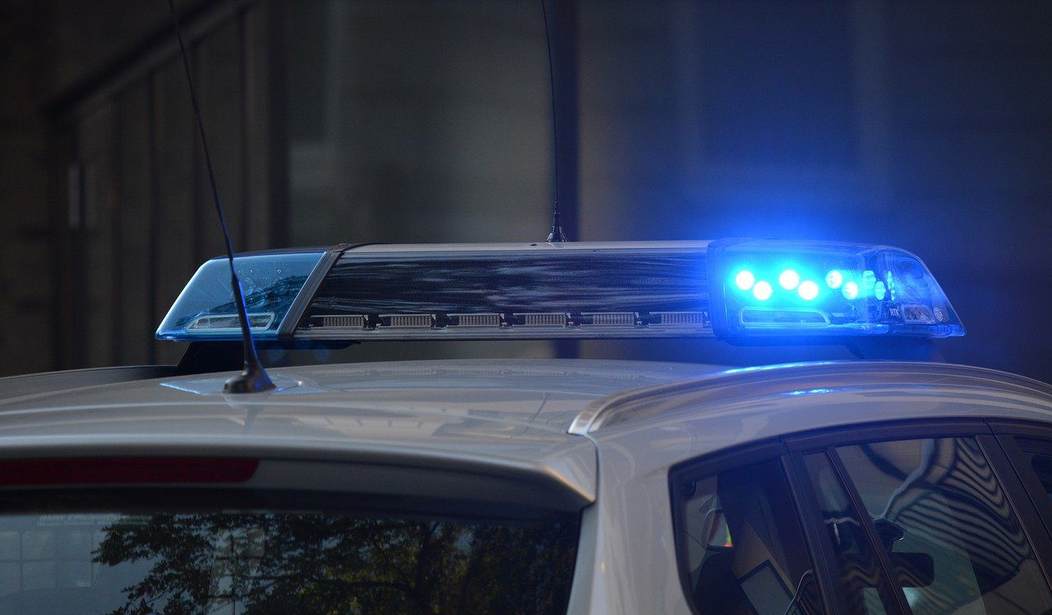Back in November of 2018, Basel Soukaneh was driving in the city of Waterbury when the GPS navigation on his smart phone glitched and froze. Soukaneh pulled his car over to the curb so he could deal with that minor inconvenience, not realizing that within a few minutes, he’d be in handcuffs.
A police officer pulled up behind Soukaneh, and the officer approached the Kia Sorrento where Soukaneh was sitting. When the officer demanded Soukaneh’s license, he complied, but also handed the officer his gun permit and informed the cop that did have a pistol in the driver’s side door. According to Soukaneh, that’s when Officer Nicholas Andrzejewski “forcibly removed” the gun owner from his car, slapped him in handcuffs, and placed him the back of his cruiser while he searched Soukaneh and his vehicle.
Andrzejewski found pills in Soukaneh’s possession, but they turned out to be nitroglycerin for his heart and not any type of illegal narcotic. The officer also seized $320 in cash and a thumb drive that had photos of Soukaneh’s late father on it. All this after Soukaneh had promptly informed the officer that he had a permit to carry and he did have a firearm on him.
After Soukaneh’s detention, he filed a lawsuit against the officer claiming that his Fourth Amendment rights had been violated, and this week U.S. District Judge Janet Bond Arterton agreed; rejecting Andrzejewski’s claims that he had probable cause to detain Soukaneh and search his car, and even if he didn’t, the case should be dismissed because of qualified immunity.
At oral argument, Andrzejewski claimed that his “conduct was still justified because he had probable cause to believe [Soukaneh] was possessing a firearm without a permit as he had not yet been able to verify the validity of the permit.” In other words, because Soukaneh “disclosed he had a weapon in the vehicle,” that gave him probable cause to search and seize Soukaneh. In Connecticut, carrying a pistol in a car without a permit is a Class D felony.
Andrzejewski further argued that he had the authority to search Soukaneh’s car because there was an “objectively reasonable basis to suspect that [Soukaneh] was dangerous because of the known presence of his gun.”
Finally, as a fail-safe, the officer claimed that he was entitled to qualified immunity, which shields government employees from any legal liability for violating someone’s constitutional rights, so long as those rights were not “clearly established.”
… Judge Atherton made quick work of Andrzejewski’s arguments, denying qualified immunity and allowing Soukaneh’s lawsuit to continue. “There is no indication that [Soukaneh] was even arguably unlawfully possessing a firearm,” she wrote. It was an “uncontested fact” that Soukaneh “presented his pistol permit to [Andrzejewski] before or at the time he disclosed that he was in possession of a pistol.”
As a result, the judge concluded that “no reasonable officer could believe probable cause was present.” And since arresting Soukaneh was done “without probable cause, the search of [his] vehicle cannot be justified as a lawful search incident to arrest.”
Moreover, in the Second Circuit (which covers not just Connecticut but New York and Vermont as well), “an officer needs more than mere presence of a weapon for which the possessor is licensed, to justify searching a car during the course of a traffic stop.” Atherton pointed out that Soukaneh was “friendly and compliant” and freely told the officer about his gun and permit.
As for Andrzejewski’s claim of qualified immunity, Arterton wrote that while the initial traffic stop may have been justified, the officer’s actions after Soukaneh handed over his license and gun permit were not.
On this record, no reasonable officer could conclude that Plaintiff posed a meaningful threat of being “armed and dangerous” simply because he disclosed that he had a pistol and a license to possess it. Knowles, 525 U.S. at 118 (emphasis added). Any contrary holding would make it practically impossible for the lawful owner of a firearm to maintain a Fourth Amendment right to privacy in his or her automobile. he Court therefore denies summary judgment on the search of the vehicle and declines to immunize the office.
To do otherwise, the judge says, would “eviscerate Fourth Amendment protections for lawfully armed individuals.”
The Institute for Justice’s Nick Sibilla, who covered the case for Forbes, calls Arterton’s opinion a “welcome win for police accountability and gun rights,” and I can’t disagree. Based on the evidence, Andrzejewski appears to have grossly abused his position of authority and treated Soukaneh as a suspected criminal solely because Soukaneh had promptly informed him that he was lawfully carrying a firearm in his vehicle.
I will say that I’m pleasantly surprised to see a Bill Clinton appointee like Arterton side with a law-abiding gun owner in this case. The judge showed a healthy respect for the Second Amendment and Fourth Amendment rights of Mr. Soukaneh in issuing her decision, and I think she made the right conclusion after hearing both sides. Let’s hope the Second Circuit of Appeals does the same when they get ahold of the case.









Join the conversation as a VIP Member